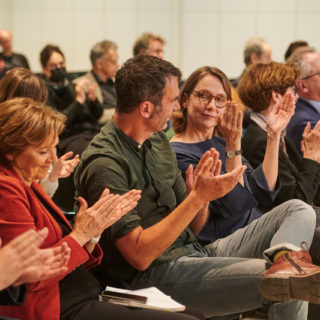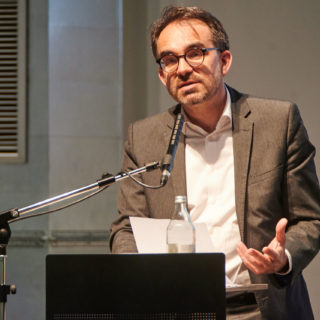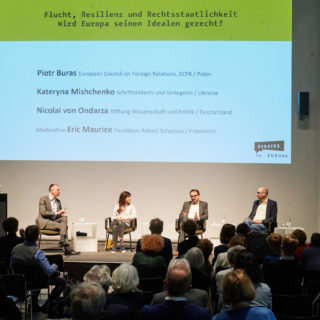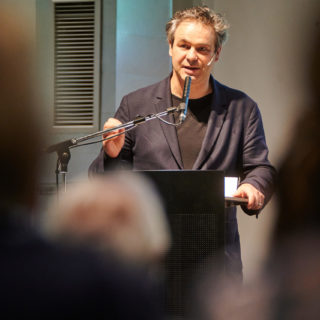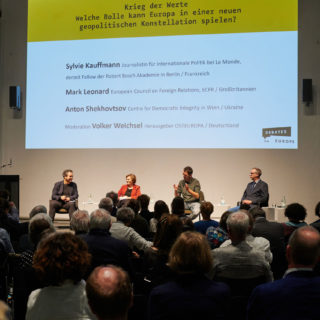The Future?
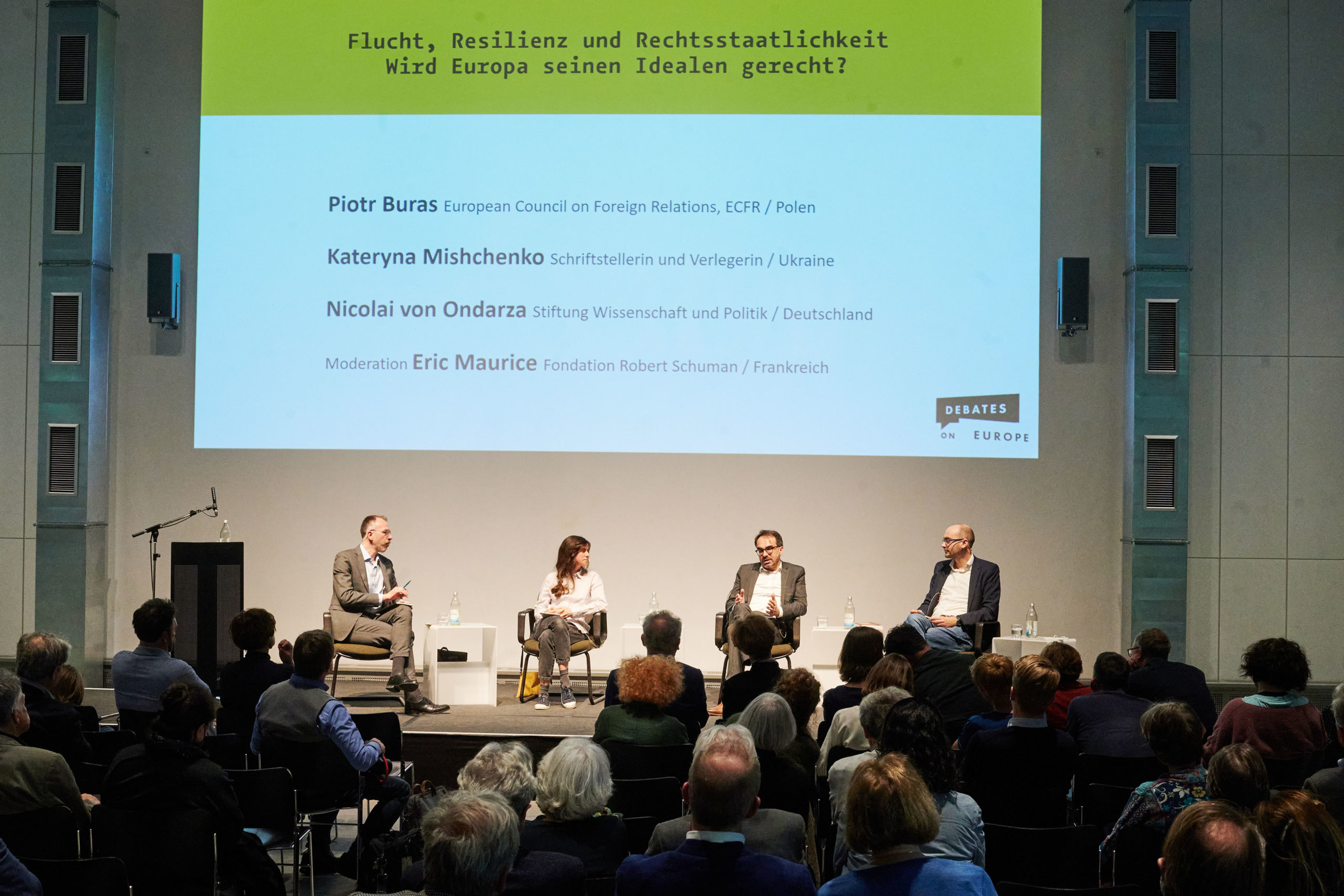
On 26th May 2022, Debates on Europe hosted two events at the Deutsches Hygiene-Museum Dresden as part of the spring meeting of the German Academy for Language and Literature. Focal point of the two panels was the war in Ukraine and its implications.
The first panel featured Kateryna Mishchenko, Nicolai von Ondarza and Piotr Buras and discussed refugees, EU enlargement, and European ideals. Mishchenko stated that only recently, talking to another Ukrainian in Berlin, they felt as if they were “ambassadors of a dark future … or past … or some other temporality. But I am afraid we are talking about the future”. She also stressed that solidarity should not only be extended to refugees pouring into other countries: “I stay mentally in Ukraine and I think of the people who are there. And they also need solidarity.” As for so-called European ideals, Mishchenko spoke about how she has grown disenchanted with them long ago, for example when she witnessed people being prosecuted for saving men and women from the depths of the Mediterranean Sea. The panel was moderated by Eric Maurice.
Panel number two saw Mark Leonard, Sylvie Kauffman and Anton Shekhovtsov discuss the geopolitical shifts and consequences of the war in Ukraine as well as the discrepancy in the reactions to it: in and outside of Europe. Leonard argued that the reaction of the so-called global south to the war has to do with the legacy of colonialism and the fight for sovereignty – points that are usually not taken into account when Europeans discuss Russia and Ukraine. Shekhovtsov added that, in this broader, global sense, Ukrainians sometimes fail to ask themselves the question “Why do you think that everyone should immediately be interested in what’s going on in your country?” But he cautioned against the discursive shrinking of Europe to just Western Europe when talking about colonialism and imperialism. Lastly, Kauffman underlined the importance of the war’s outcome on relations with China. The panel was moderated by Osteuropa’s Volker Weichsel.
In cooperation with Deutsches Hygiene-Museum Dresden | Funded by the Cultural Foundation of the German Federal States
